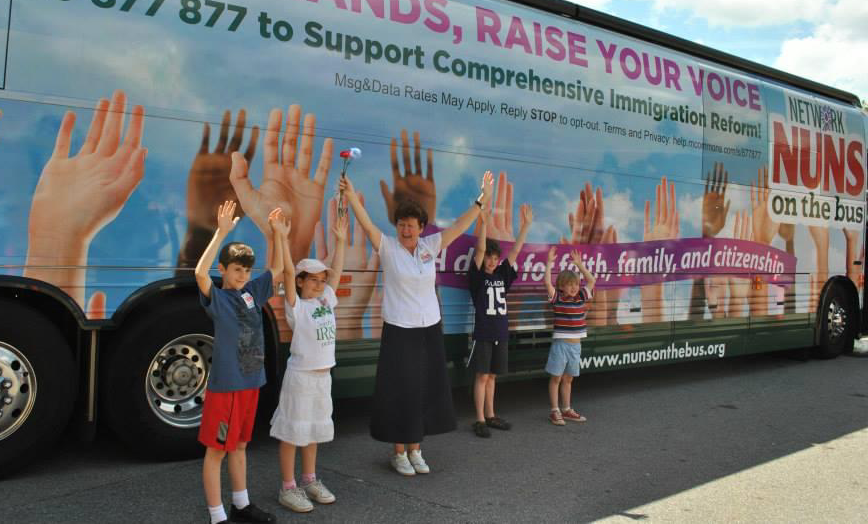From the beginning of the church's modern social teachings with Pope Leo XIII in 1891, all our popes have made statements on a wide range of rights all people have because they are created in the image of God. Twentieth- and 21st-century popes have been focused on social rights (the right to health care and to education), economic rights (the right to earn a just living wage) and cultural rights (the right to learn and speak traditional language), as well as on civil and political rights (i.e., the right to vote).
Their concern with this wide range of human rights provides a context for the development of Catholic social thinking over a century and for understanding the responsibilities that we all have to support these rights as a way to develop the common good. For more background, check out this link: "Rights & Duties."
Helping young people understand the scope of the church's teaching on human rights can prepare them for the responsibilities of faithful citizenship in this nation and in the global community. Reflecting on rights and responsibilities is an important step to becoming a mature person of faith and a contributor to the common good of this nation and the global community.
Creating a bill of rights
Put students in small groups of three to four. Tell them they are a committee to develop a draft bill of rights for a new country. Explain the difference between:
Economic and social rights: These relate to a person's ability to live in dignity and develop and flourish as a human being.
Civil and political rights: These relate to the obligations of nation states to protect the freedom of their citizens and allow for full participation in society.
Given these rights, ask the students to consider what would be some of the responsibilities of citizens of the new nation state.
Have the students brainstorm a list of possible rights for both categories.
Have a group member report their list as another writes the list on a blackboard, newspaper sheet, etc.
With the following groups, only add rights that are not already on the board; put a checkmark next to rights already mentioned.
Finally, have students consider the rights our popes have named in their writings over the decades — and may want to add to their list.
What were the most frequently identified by your groups as possible rights — and why were such rights easily identifiable?
What were some rights that you did not identify but are identified with our church's teaching on rights?
What rights in the chart were a surprise to you, and why?
What rights are most important to you, and why?
What responsibilities do citizens have so human rights can flourish for the common good and for the welfare of all human beings, in their own country and around the world?
Christ, you call us to solidarity with all your children; your church calls us to respect and uphold human rights for all our sisters and brothers. Help us to respond to your call as we educate ourselves and others on basic rights, and as we strive to advocate for the rights of all members of the human family, near and far. Grant us wisdom as well as knowledge to understand your church's teaching, grant us compassion as well as courage to live out our responsibilities as your disciples. Amen.
Tell us what you think about this resource, or give us ideas for other resources you'd like to see, by contacting us at [email protected].
